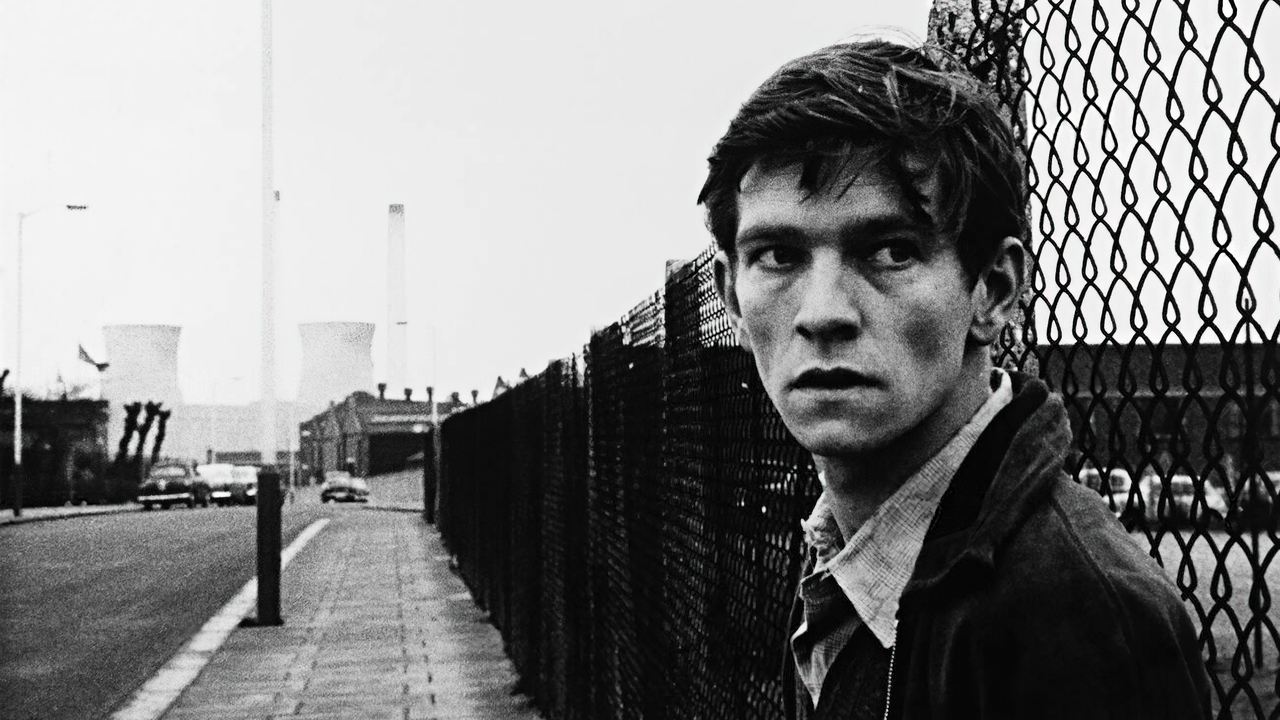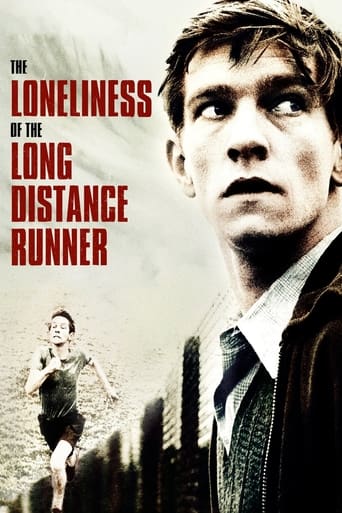

THE LONELINESS OF THE LONG DISTANCE RUNNER is director Tony Richardson's follow-up to A TASTE OF HONEY and another kitchen sink drama. However, this one's much better than his previous constrained effort, as this explores working class life and struggles on a much grander tableau. The main character is a teenage running champion whose life in a borstal is explored in the grittiest of detail while his back story is explored via flashbacks.The story is well cast and accentuated by the ring of authenticity. Tom Courtenay is exceptional as the protagonist, never smiling, never happy, but at the same time proving ultimately sympathetic given his background and story. A strong supporting cast including Michael Redgrave, James Bolam, and even John Thaw help to propel things along. The situations remain interesting and are surprisingly undated given the film's age, and there's always some drama to keep your mind occupied. I particularly enjoyed the ending, which would seem insignificant to an outsider with no knowledge of the film's plot, but which becomes almost an epic struggle to those who have sat through the preceding narrative.
... View MoreThis has always been one of my favorite films. I saw it as a kid on Million Dollar Movie from New York. they would.show.the same film every night for a week. I don't know how many times I saw it but I was mesmerized by the bleak b/w landscape that reminded me so much of my hometown in Edison, NJ. It was the first time I'd ever been shown that bleakness could be beautiful. it was also astonishing to see the interiors of Col's house. It made me feel like a millionaire. And, as someone else said, the scene of Col burning the money was stunning to me, night after night.and then I never saw the film again for 20 years. I saw it in the TV listings and I was afraid to watch it. I'd built it up so big in my mind that I was afraid it'd be a letdown. when I saw it again I was shocked at how good it still was. when I was a kid I saw Col's actions at the end as a grand gesture to authority. Lately I see him as someone who is just stuck. He can't decide. Yeah, I know he smirks at the headmaster in the scene, but I think it's bravado. with all those voices in his head it's as much can't as won't consummate the act. Whatever, a killer movie for all time.
... View MoreUK 104m, B&W Director: Tony Richardson; Cast: Tom Courtenay, Michael Redgrave, James Bolam, Ray Austin, John Thaw, Alec McCowenThe Loneliness of a Long Distance Runner is a brilliant expose of social class, poverty and youth disillusionment in Britain during the early 1960s. Sentenced to reform school for petty crimes, Colin Smith is a rebellious youth from a poor family who is encouraged by the headmaster to train for an inter-school cross-country championship race. During Colin's many hours of training, we witness in flashback the events which led to his incarceration, and the underlying reasons for his defiance against authority. Taking advantage of special privileges to train, Colin uses the freedom to escape from his grim surroundings. Recognizing that he is being used, he surprises everyone by with a wonderfully unforgettable act of defiance at the finish of the championship race (Klaus Ming September 2013).
... View MoreYou've got to hand it to the British. The movie's lead character is neither handsome nor very likable, something Hollywood of the time would never have done. As Colin Smith, Courtenay does have a compelling screen presence that's perfect for an ambiguous role. Of course, we sympathize with the working class boy's difficult life and grim surroundings. He appears an instinctive rebel when he burns some money his shrewish mother gave him. But then, he turns around and steals money from a neighborhood bakery and ends up, despite some fast talking, in reform school. So now it looks like Smith is on the fast track to nowhere, like so many of his working class peers. There doesn't appear to be anything special about him except for one thing-- he finds out he's good at running. But how do you use something like that to lift yourself out of a grim background and a barracks-like reform school. Fortunately for Smith, the head of the school (Redgrave, in a tight-lipped performance) opens up an avenue for him. Just beat our arch rival in long-distance competition, says the impressed Redgrave, and the boy will be considered for the British Olympic team. So now, seeing a way out of the harsh surroundings, the formerly rebellious Smith reforms his ways and becomes Redgrave's "blue-eyed boy".All he has to do in return is subordinate himself to others, play the game, and do what he does best, run. The trouble is he discovers something when he's running alone and in the open, something he's never felt before in his closed-in environment. He discovers an overpowering sense of freedom and maybe a better sense of himself too. It's a heady experience that can't be forgotten. So now there's a clash in his life. It's one between his newly found sense of personal freedom versus the game he needs to play to get ahead in society. So what will he do, and what will that say about him, where he comes from, and what success requires. It all comes together the day of the big race.I've hit the high points, as I understand them, because there's little that's revealed by the script. Instead, the viewer has to combine the telling visuals with Smith's general behavior in order to grasp the points of the narrative. In short, nothing is explained for us. For example, nothing need be stated about Smith's environmental influences since the visuals speak volumes. Nor do we need to hear about his family life since the visuals again speak volumes. Also, the flashbacks help by separating past reasons for his later behavior from that behavior. All in all, this was an indirect mode of storytelling that American audiences were not used to in 1962. But it did strike a chord as the box-office numbers indicated.It's a tribute, I think, to the filmmakers that the movie's elements are put together well enough to draw us in and keep us there. The movie's also proof for old Hollywood that leading men don't need to be either handsome or likable to bring in an audience. It also shows that audiences will make an effort to understand when they think the effort is worth it.
... View More